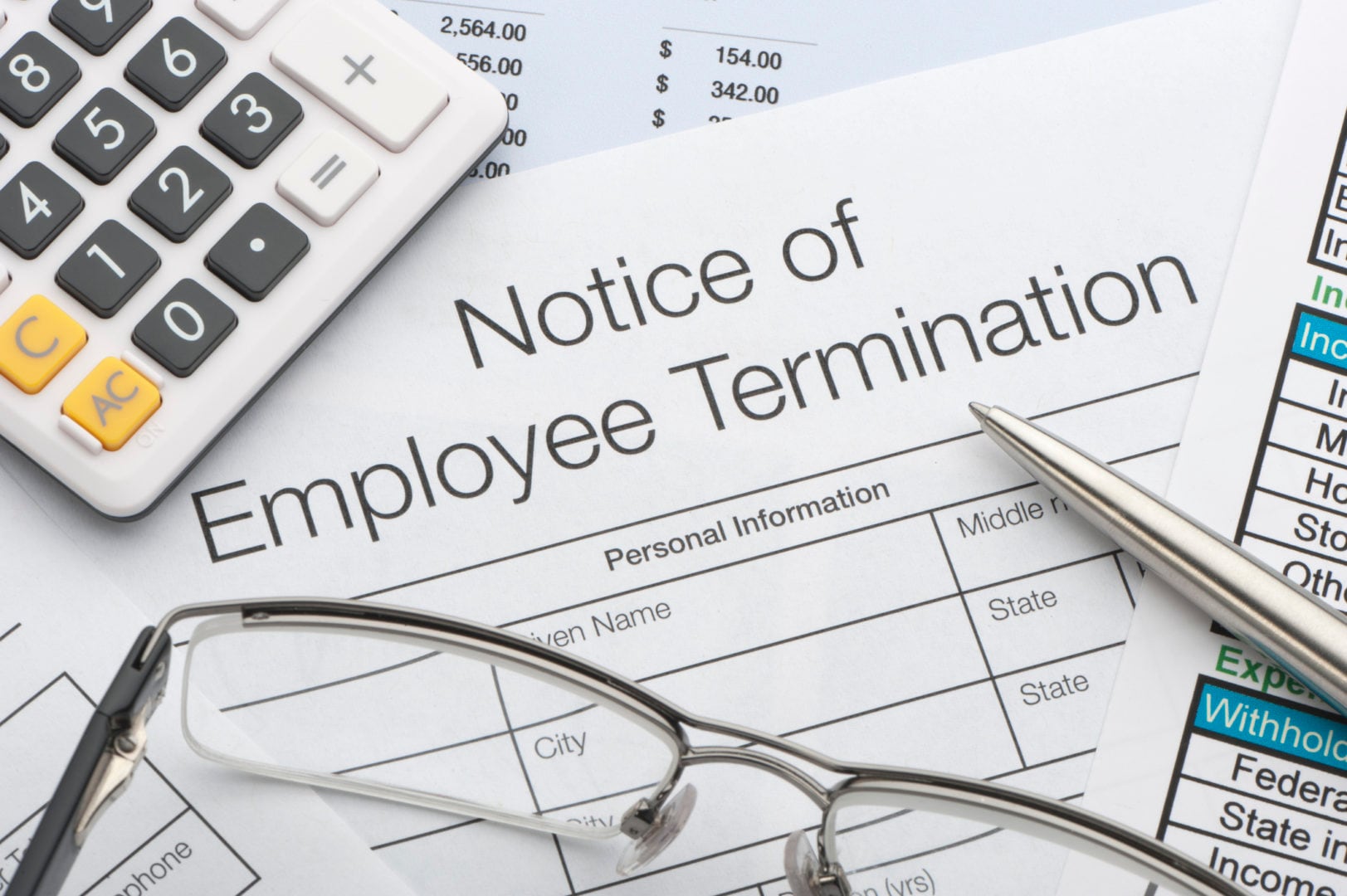Letting go of a nanny or senior caregiver is never an enjoyable experience. Your household employee most likely has become an extension of your family, so when it’s time to let them go, it’s important that everything goes as smoothly as possible. In this article, we’ll go over several items you need to cover when laying off or firing your employee — and the extent of your responsibilities depend on where you live.
- What federal law says about terminating an employee
- Additional laws your state may have
- When your employee should receive their final pay
- How to handle unused paid time off
- Whether you need to provide a termination notice
What does federal law say about terminating a caregiver?
Federal law is not very restrictive when it comes to how termination of an employee should be handled. You just need to make sure your caregiver receives their final paycheck by their next regularly scheduled payday. If your caregiver has unused paid time off or sick time, those hours do not need to be paid out unless you agreed to do so in your employment contract.
“Generally speaking, anything promised to your caregiver in their contract must be followed unless it violates state, federal or municipal law,” says Tom Breedlove, Sr. Director of Care HomePay. “For example, no law requires severance pay, but if a contract states your caregiver gets two weeks of severance if they’re laid off, you’re required to pay it as long as your caregiver isn’t fired for cause.”
What are some things that can change on the state level from federal termination laws?
Typically, there are three items that can potentially vary depending on the state you live in:
When your nanny or senior caregiver must receive their final paycheck.
Whether unused paid time off is required to be paid out.
Whether you are required to provide a Termination Notice to your employee.
Since there is so much variation from state to state, continue reading to see exactly what you need to do.
How should a caregiver receive their final paycheck?
As previously mentioned, federal law says you need to give your former caregiver their final paycheck no later than their next scheduled payday. Thirty-one states also adhere to this schedule, but the following states have different timelines for when an employee should receive their final pay:
CA, CO, HI, MA, MO, MT and NV – At the time of the termination.
CT and DC – The following business day.
ID – Your caregiver can make a written request to be paid within 48 hours of a termination.
AZ – Next scheduled payday or within seven working days.
MN – Next scheduled payday or within 24 hours of a request for final pay.
OR and UT – Within 24 hours of their termination.
AK – Within 3 working days of being terminated.
NM – Within 5 days of being terminated.
TX – Within 6 days of being terminated.
NH and VT – Within 72 hours of being terminated.
How does my state want me to handle unused paid time off?
Washington, D.C. and 30 states follow federal guidelines of not requiring unused, accrued paid time off to be paid out to your terminated caregiver. But there are 20 states that require you to pay your caregiver for their unused, accrued paid time off at the time of termination: CA, CO, IL, IN, LA, MA, MD, ME, MT, NC, ND, NE, NJ, NY, OK, SC, TN, UT, WY and RI (if your caregiver worked for you at least one year).
What states require a termination notice to be given to a caregiver?
If you live in AK, AL, AR, CA, CT, GA, ID, KS, KY, MA, MD, MI, MS, NM, NY, PA, RI, SD, TN, WI or WY, you are required to provide a written Termination Notice to your caregiver. Four other states (Washington, North Dakota, Montana and Maine) require written notice only if your caregiver requests it or if it’s promised in your employment contract.
“In addition to these payment requirements, it’s also a good idea to mention to your caregiver that you’ll follow up with them at the end of the year to make sure their email or mailing address didn’t change,” adds Breedlove. “This way, you can ensure they receive their Form W-2 for tax filing purposes.”
Families are often not prepared to adequately deal with HR issues like termination. It’s an emotional time for both family and caregiver and being unsure of state and federal law can make for an ugly situation, which is where a specialized service like HomePay can help. We’re prepared to walk families through exactly what they need to do to be compliant — while keeping things as stress-free as possible with their caregiver.
Next Steps:

